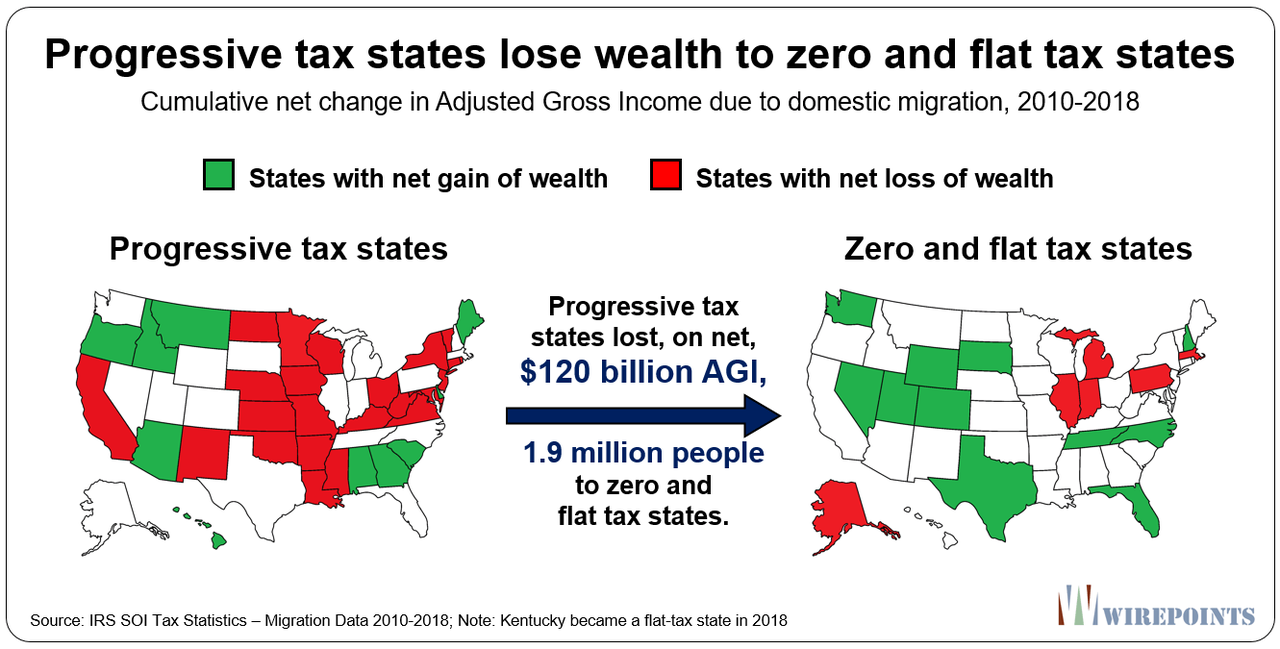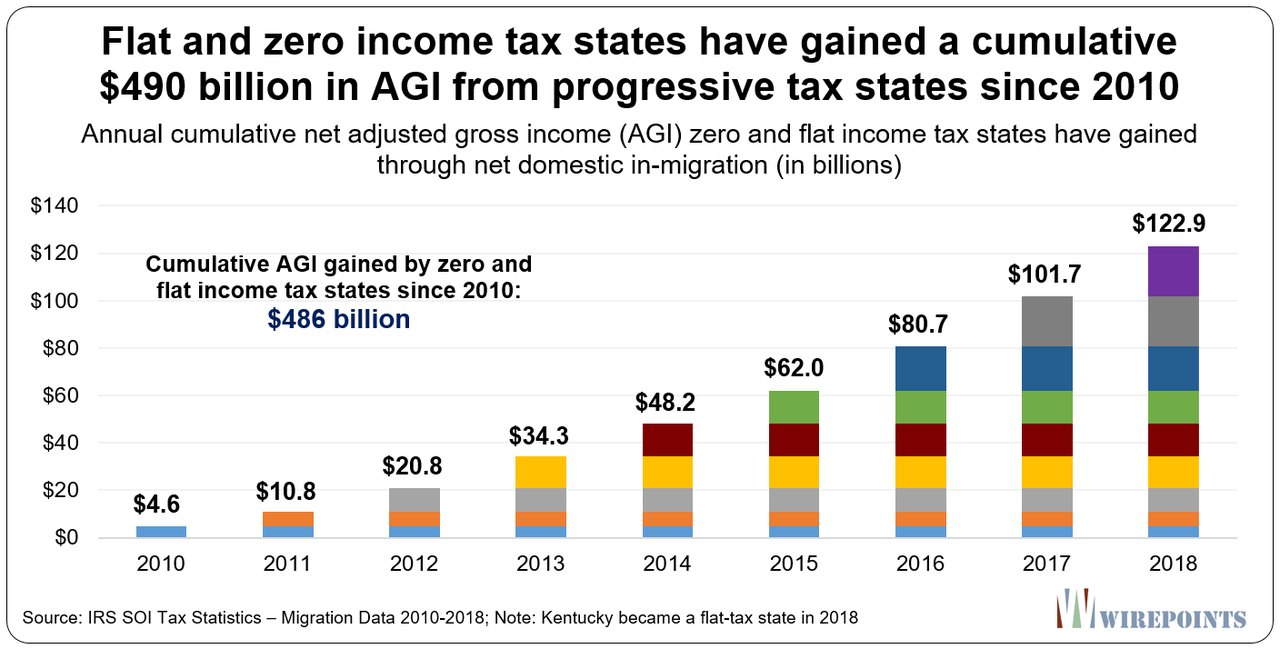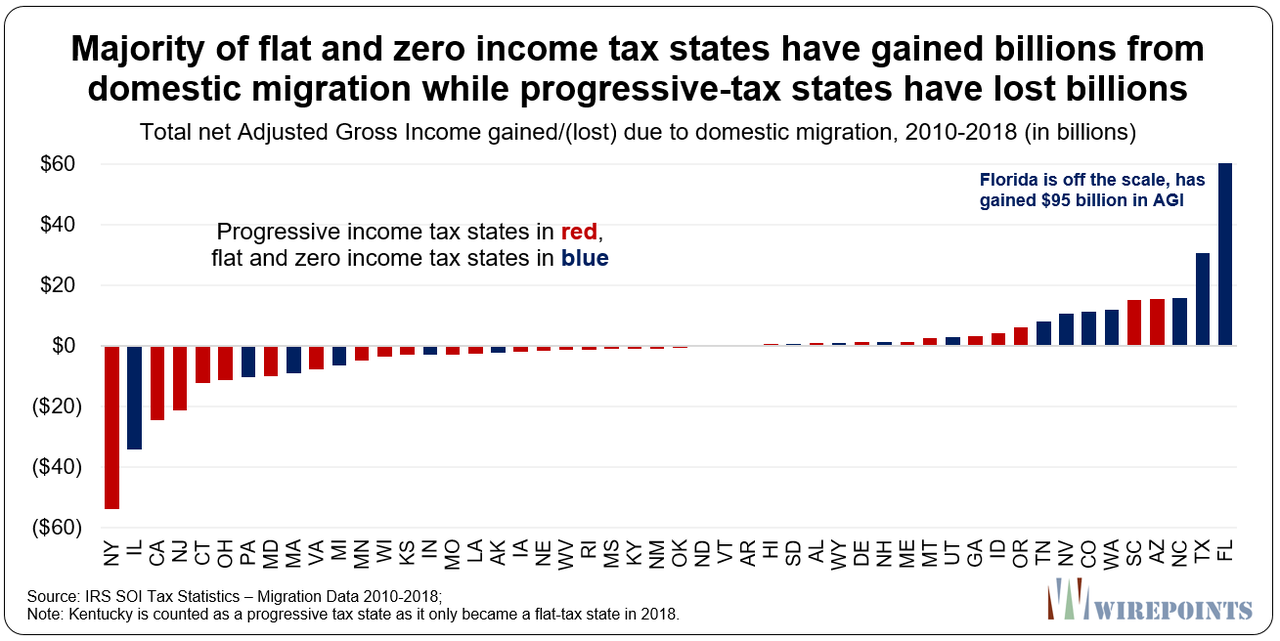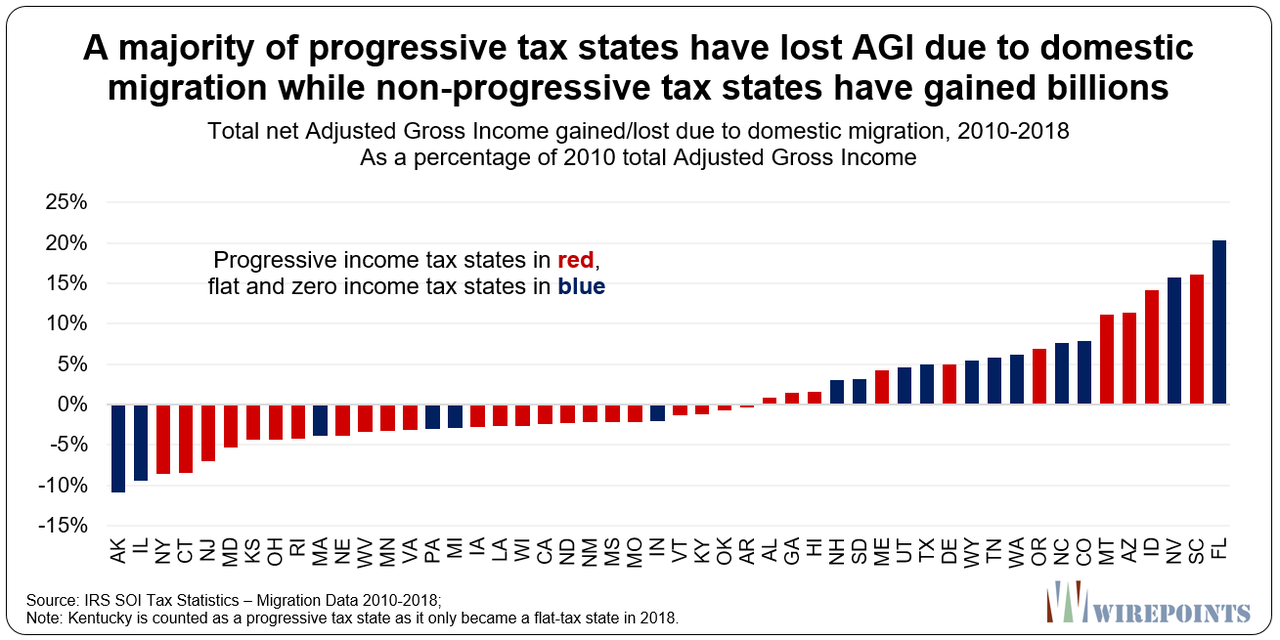Progressive Tax States Lose People, Income To Flat And Zero Income Tax States
Tyler Durden
Tue, 06/16/2020 – 20:05
Submitted by Ted Dabrowski and John Klingner via Wirepoints.org,
Flat and no-income tax states, as a group, are beating out progressive tax states in the contest for people and their incomes, according to the last decade of IRS migration data analyzed by Wirepoints.
The nation’s seventeen flat and no income tax states won a net 1.9 million residents and $120 billion in Adjusted Gross Income (AGI) from progressive tax states during the 2000-2018 period. That’s nearly a 4 percent AGI gain for the flat and no income tax states, based on their 2010 base of $3.3 trillion in AGI. A table with the individual winners and losers over the time period is provided below.
The net gains in AGI not only bolster the tax base the year in which they come in, but they also help all subsequent years. The gains pile up on top of each other, year after year.
That means the country’s flat and zero income tax states, as a group, have accumulated $490 billion in AGI since 2010 from the nation’s progressive tax states, adding vibrancy, investment and tax revenues to the winning states.
States don’t change their income tax schemes often, so when they do, it’s a big deal. The change pits those who favor progressive taxes against those who want a flat tax or no income tax at all. Eight states don’t tax income at all in the U.S., while ten states have flat income taxes. Thirty-two states have some form of a progressive tax scheme.
Connecticut was the last state to move to a progressive tax structure in 1996, while North Carolina (2013) and Kentucky (2018) changed to a flat tax more recently.
Now some Illinois politicians want to abandon the state’s flat tax in favor of a progressive income tax. They argue, among other things, that higher taxes will bring more stability and people to the state.
But the movement of people and wealth across the country tells a different story.
The accumulated pattern over the past nine years is pretty clear. People are moving from progressive tax states to flat and zero income tax states. Of course, people move for a whole host of other reasons beside taxes: jobs, housing, family, weather, retirement, corruption, etc. Taxes are only one reason. But for many people, they are a big one.
The wealth accumulation by the flat and zero-income tax states is all the more impressive considering there were just 17 such states (not including Kentucky) compared to 33 progressive tax states.
Total gains
The $120 billion total is the net transfer between the two groups of states. In terms of individual total wealth gained from migration, zero and flat income tax states make up seven of the top ten winners of net domestic migration.
Florida, a state with no income tax, has been the biggest winner by far. The Sunshine State has gained nearly a million net people and over $95 billion in AGI from other states since 2010.
Zero-tax Texas is up next with a gain of $31 billion in AGI, followed by North Carolina with $16 billion. Two progressive tax states, Arizona and South Carolina are next, then non-progressive Washington, Colorado, Nevada and Tennessee. Progressive tax Oregon rounds out the top 10.
In contrast, the list of top losers is filled with progressive tax states. New York is the worst in the country; it has lost a net $55 billion in AGI to other states since 2010. Illinois, where politicians want to join the ranks of progressive-tax states, is next with a net loss of over $34 billion. Progressive tax California, New Jersey, Connecticut and Ohio are next. Flat tax states Massachusetts and Pennsylvania along with progressive Maryland and Virginia round out the top ten losers.
The gains and losses states have experienced since 2010 aren’t trivial. Winning states have, on average, seen net AGI gains from other states equal to 10 percent of their 2010 base AGI. Once again, Florida takes the top spot with an in-migration gain equivalent to 20 percent of its 2010 AGI. Progressive tax South Carolina is next with a gain of 16.1 percent, followed by Texas with 15.7 percent.
Illinois, meanwhile, lost the equivalent of 10 percent of its 2010 AGI to other states, the 2nd-worst loss in the nation behind Alaska.
What all this shows is that progressive tax states, if they’re attractive in other ways, can still win people and their incomes. And it shows that a flat tax state like Illinois can lose people if it’s corrupt, mismanaged and financially crippled.
So no, taxes aren’t everything. But add a progressive tax scheme to the nation’s most mismanaged, most-indebted, near-junk-rated and highest taxing state in the country and you’re asking for trouble.
Just follow the money.



